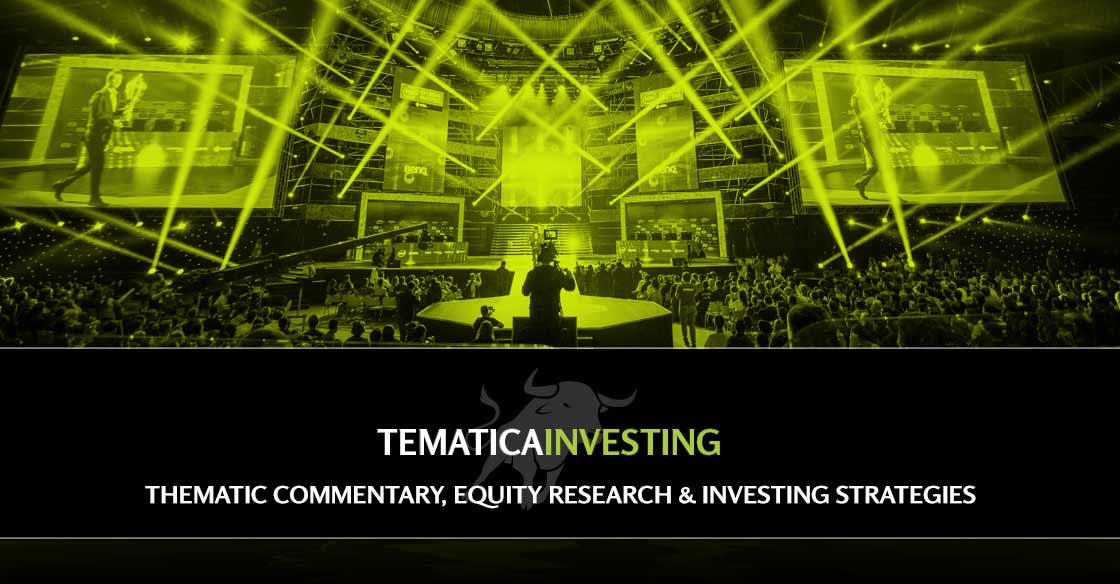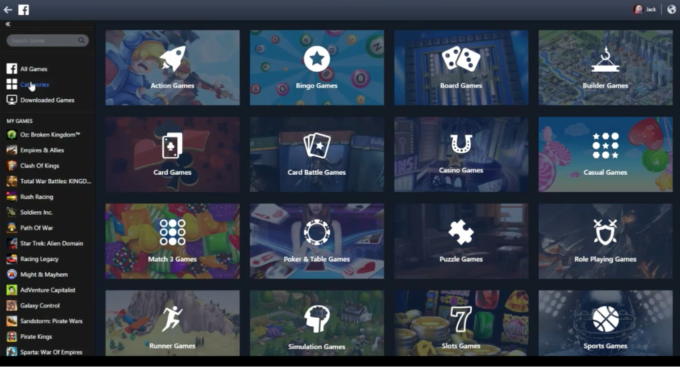A Content is King primer on the developing world of e-sports
Amid expanding markets such as digital commerce and streaming video that sit at the top of our Connected Society investing theme —and to some extent, our Content is King one — other growing markets and their opportunities can be stepped over and missed from time to time. One that I’ve been keeping tabs on from the periphery market is e-sports, but even I tend to sit up and take notice when the market for this form of content consumption is set to grow from $493 million in 2016 to $660 million this year, and more than $1.1 billion in 2019. That’s remarkable growth, fueled by a growing base of global enthusiasts, and one that is seeing Corporate America sit up and take notice as well.
That’s right, as amazing as it might sound, more than 20 years after the first video game tournaments, top e-sports tourneys now draw audiences that rival the biggest traditional sporting events. A decade ago, amateur competitions drew a few thousand fans in person and over the Internet. In October 2013, 32 million people watched the championship of Riot Games’ League of Legends on streaming services such as Twitch and YouTube — that’s more than the number of people who watched the TV series finales for Breaking Bad, 24 and The Sopranos combined; it’s also more than the combined viewership of the 2014 World Series and NBA Finals.
In 2015, Twitch reported more than 100 million viewers watch video game play online each month. According to the Entertainment Software Association, more than 150 million Americans play video games, with 42% of Americans playing regularly. The key takeaway from this litany of statistics is the e-sports market has continued to grow. And it is poised to continue doing so, as casual-to-serious players become tournament viewers.
In the last few months, streaming service Hulu has picked up four new series that are centered around e-sports as part of its move to replicate the success at Netflix (NFLX) and Amazon (AMZN) in their push to create original and proprietary content. Another sign that e-sports are turning into a big business was at rating company Nielsen (NLSN) when it launched a new division focused on providing research on e-sports.
One of the opportunities being assessed by Nielsen lies in measuring the value of e-sports tournament sponsorships. In 2017 there are more than 50 such events, with recent and current e-sports tournament sponsors including Coca-Cola (KO), Nissan, Logitech (LOGI), Red Bull, Geico, Ford (F), American Express (AXP) and a growing list of others.
Tournaments streamed to everyone over Twitch.tv have reported five million concurrent viewers for Dota 2 and 12 million concurrent viewers for League of Legends. And these viewers tend to be the ones consumer product companies want — more than half of e-sports enthusiasts globally are aged between 21 and 35 and skew male. That’s the sound of disposable income you hear — and so do those sponsors.
The ripple effect is even moving past tournaments into movies and other content forms. Video game maker Nintendo (NTDOY) is reportedly near a deal with Illumination Entertainment, a partner of Comcast (CMCSA) to bring its flagship Super Mario Bros. franchise to the big screen. Granted Super Mario is not quite the same as some of the games associated with e-sports, but it is one of the most popular video game franchises of all-time, with the series of games selling over 330 million units worldwide. Over the last few quarters, we’ve seen a film hit screens based on the Assasin’s Creed game that was first released in 2007, and this leads us to think we could see more storylines developed much the way Disney (DIS) and 21st Century Fox (FOXA) are doing with the Marvel characters and Time Warner (TWX) with Batman, Superman, and other DC comics properties.
When I see a market taking shape like this, with these characteristics and all the confirming data points to be had, it means looking at which companies are poised to benefit from this aspect of our Content is King investing theme.
In this case, that means interactive gaming content ones like Electronic Arts (EA), Activision Blizzard (ATVI) and Take-Two Interactive (TTWO) among others. In looking at the industry data, we find a rather confirming set of data given the most recent monthly video game sales data for September published by NPD Group showed robust year-over-year sales, up 39% to $1.21 billion.
Breaking it down, software sales soared 49% due to the continued shift to console and portable platforms and away from PCs, and hardware sales rose 34% vs year ago levels. The top three games of the month were Activision’s Destiny 2, NBA2K18 by Take-Two and Madden NFL 18 by Electronic Arts. That set the stage for third-quarter 2017 earnings for these companies, especially given that in September Activision’s Destiny 2 became the best-selling game of thus far in 2017.
Recently, Electronic Arts shared on its third-quarter 2017 earnings call that among its growth priorities is the expansion of live services, which includes the integration of the company’s e-sports business across more gaming titles. As such, EA sees competitive gaming becoming a greater piece of its portfolio, as it builds on Madden NFL Club Championship, the first e-sports competition to feature a full roster of teams and players from a U.S. professional sports league. Tournaments to represent all 32 NFL teams are already underway.
Meanwhile on its September quarter earnings call Activision Blizzard confirmed its e-sports Overwatch League will begin regular season play on January 10, it has inked sponsorship deals with Hewlett-Packard (HPQ) and Intel (INTC) and the Overwatch community now spans more than 35 million registered players. The league has 12 inaugural teams complete with physical and digital merchandise for sale to fans.
We’ll be watching to see the initial reception as pre-season competition begins next month at the Blizzard Arena Los Angeles and we’ll be sure to crunch the numbers and understand what’s baked into existing expectations for ATVI shares and the others. Those answers will help determine how much additional upside there is to be had near term, following the meteoric rise of ATVI shares this year — up more than 75% year to date vs. 25.7% for the Nasdaq Composite Index and more than 15.0% for the S&P 500.


